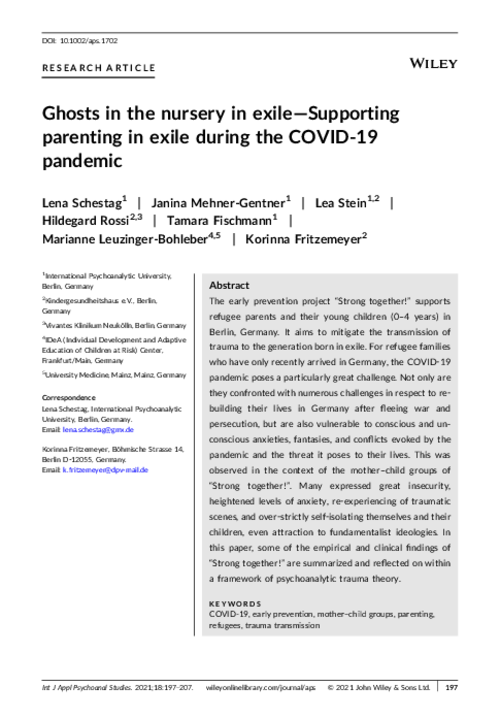The early prevention project “Strong together!” supports refugee parents and their young children (0–4 years) in Berlin, Germany. It aims to mitigate the transmission of trauma to the generation born in exile. For refugee families who have only recently arrived in Germany, the COVID-19 pandemic poses a particularly great challenge. Not only are they confronted with numerous challenges in respect to re-building their lives in Germany after fleeing war and persecution, but are also vulnerable to conscious and unconscious anxieties, fantasies, and conflicts evoked by the pandemic and the threat it poses to their lives. This was observed in the context of the mother–child groups of “Strong together!”. Many expressed great insecurity, heightened levels of anxiety, re-experiencing of traumatic scenes, and over-strictly self-isolating themselves and their children, even attraction to fundamentalist ideologies. In this paper, some of the empirical and clinical findings of “Strong together!” are summarized and reflected on within a framework of psychoanalytic trauma theory.
Hinweis: Dieser Beitrag ist dem Artikel entnommen.
